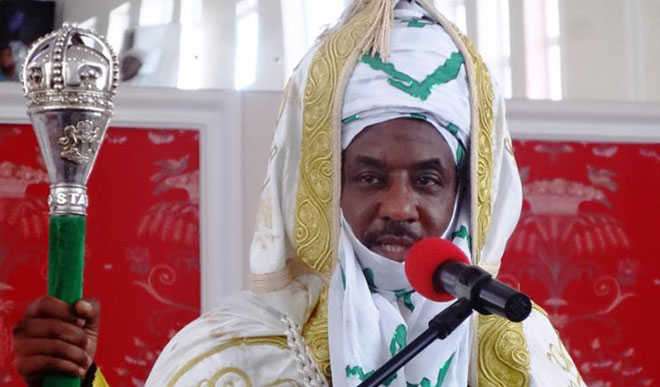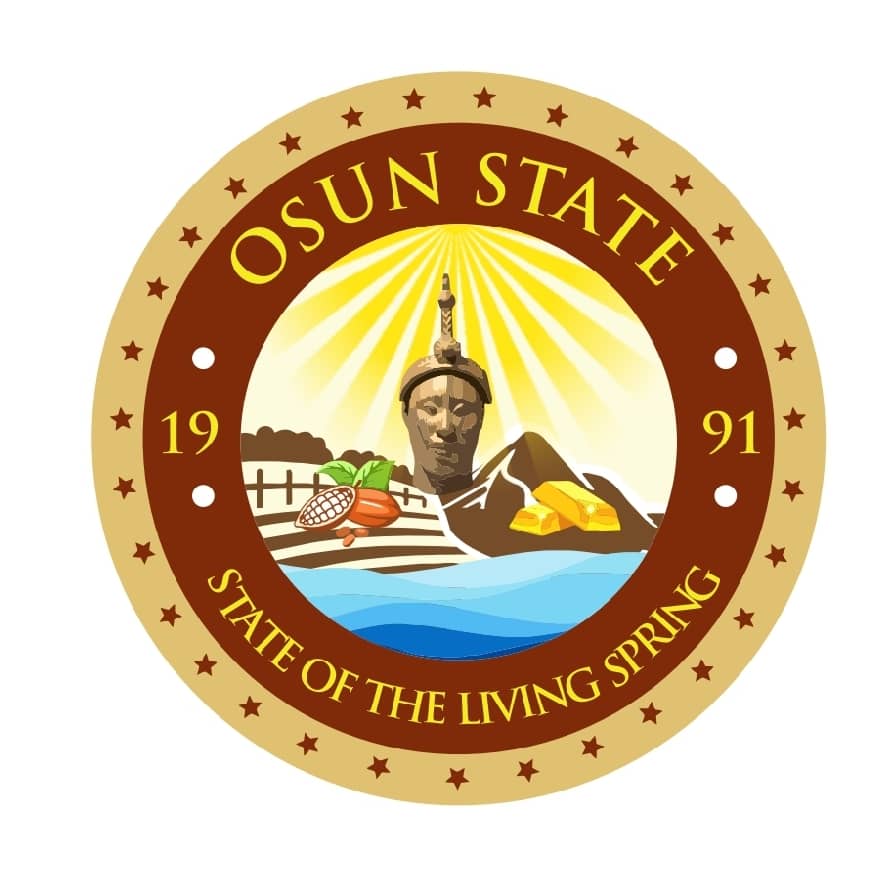Zoning May Leave Nigeria With Two Useless Presidential Candidates In 2023 — Sanusi


Muhammadu Sanusi II, former Emir of Kano, says zoning the presidency to a particular region may leave the country “with two useless candidates” in 2023.
Speaking on Arise Television on Friday, Sanusi said he has always objected to discussions that take into account where a president should come from.
There have been talks in the All Progressives Congress (APC) and the Peoples Democratic Party (PDP) about zoning the presidency to the south.
The former Central Bank of Nigeria (CBN) governor said Nigeria needs a president who can deliver, irrespective of where he is from.
“I have always objected to this idea that we should focus on where the president comes from. We have got southern governors saying we want the presidency and some northern governors saying that they want it in the north. Have you noticed that nobody has given the name of what they want?” he said.
“This whole thing is to corner the presidency to one part of the country and the big masquerade will come out. And that is why at the end of the exercise, you end up as Nigeria… presented with two useless candidates. Those who want to be president should show their face either from the north or the south.
“Meanwhile, we have before us very serious issues. You have a simple issue of electronic transmission of results which is designed to make the electoral process fairer and you have people saying that they do not want it, shamelessly announcing to the country that they want to rig. Why are we not talking about these issues?
“The greatest weakness we have as a country is that we do not think. We are very smart when it comes to making money by doing our work but we do not apply critical intellect to… and these guys just take the entire country for a ride.
“Give me a president from any part of the country who can deliver and we should vote for him. He is not taking the presidency to his hometown.”
Sanusi said civil society organisations (CSOs) and the national assembly are not doing their jobs.
“The institutions have failed, the national assembly is not doing its work. The CSOs are not doing their work. We all have been appropriated into the agendas of political society,” he said.
“Everyone wants office, everyone wants favours from the government. If we had a strong civil society holding political society to account, we would begin to improve and tackle issues.”
Also the former Emir Of Kano Sanusi Lamido Sanusi,, described Nigeria’s petrol subsidy regime as a scam, expressing regrets over the nationwide protest that halted former President Jonathan’s planned removal of the subsidy in 2012.
Sanusi, who was the Central Bank of Nigeria governor at that time, said Nigerians made a huge mistake by protesting against subsidy removal despite efforts to explain its negative impact on the quality of lives of the people.
Nigeria has seen subsidy payment spiral out of control, pushing down possible gains from the rising global oil price following the post-COVID-19 global oil rise.
According to the Nigerian National Petroleum Corporation (NNPC), Nigeria pays an average of N120 billion monthly on petrol subsidy.
This amount has spiralled over time since NNPC is the sole importer of the products, a situation that has forced President Muhammadu Buhari-the substantive Minister of Petrol – to direct the pruning-down of the rising subsidy payment figures by the NNPC.
Speaking in a monitored television interview on Arise Television, Sanusi said Nigeria must admit that it was a poor country and should do away with the scam called subsidy to make money available for numerous developmental programmes.
“The first problem is by assuming that we are an oil-rich country. This has been a big joke for me. I remember in 2011 when we were talking about the subsidy debate when President Jonathan rightfully wanted to remove fuel subsidy,
“I said to people, you are producing two million barrels for 160 million Nigerians. That is one barrel for 80 people. Saudi Arabia produces one barrel for three citizens. These people need education, healthcare, infrastructure, electricity, telecommunications and agriculture from that one barrel that 80 people share. Then, you decide that what they need more than anything else is cheap fuel.
“That doesn’t make sense. It only made sense because there are many people who control the levers of power and are making millions and billions of dollars from the scam that is called fuel subsidy.”
The former CBN governor also noted that Nigeria benefited nothing from the oil price rise in the global oil market as it would use the gains of the rise in the market to pay for the subsidy, describing it as an impediment to developmental projects.
“Oil price goes up, oil-producing countries are happy. However, in Nigeria, oil price goes up, it doesn’t favour Nigerian economy because of subsidy payment,” he said.
“We have this scheme called subsidy which is a scam, hence everything that practically comes in goes back out to import of petroleum products and to pay subsidy because our refineries are not working and we rely on imports hugely.”
Sanusi further said that subsidies in themselves were not bad, but lots of people were making a kill from the spiralling figure and exploiting the government.
He said, ” In 2016, the then Minister of State for Petroleum then Emmanuel Kachikwu came out and said, having eliminated corruption, they discovered that 30 million litres of petroleum product were being imported daily. At that time, fuel was 40 dollars per barrel.
“By 2019, NNPC came out and said we were importing 59 million litres daily. I’m sure that today, if you ask them, they will tell you they are importing 70 million litres per day.
“How do we move from 59 million litres a day to 70 million litres a day, in an environment that the economy is not growing. We have not doubled the number of cars, and we have not doubled our population.”
Most of those numbers are phantom numbers, he said.
Sanusi said that before he raised the alarm, the Federal Government had set up a committee chaired by Aig Imhokuede to look into the subsidy payments.
He noted that the committee discovered that people were manufacturing bills of lading, stating that a particular vessel claimed it came into Lagos at a definite time whereas it was nowhere near the Atlantic on that day.
He further stated that some vessels in that bill of lading had been retired over a decade in the past.
“These people produce bills of lading, somebody in Customs will stamp, and based on that, somebody will pay duty. A lot of fuel subsidies that are being paid are from the phantom vessels of fuel that did not make their way into this country.
“You can also look at the PricewaterhouseCoopers (PWC) reports to confirm all that I said. The PWC saw a letter from DPR stating that they waved documentation in the past and said, “go and sin no more.” Where does the DPR get the power to wave the responsibility of producing evidence that fuel was actually imported into the country, as a basis for collecting subsidies?
“This was a responsibility that was bequeathed in the law setting up NNPC itself. In 2015, we thought that there was going to be a change, but we continued with the subsidies.”
“When you create the big hole by paying the inflated subsidies, you then go and borrow and get to the point of not being able to service your debts, while resorting to borrowing from the central bank.”
Recall, Sanusi was not alone in voicing out concerns about Nigeria’s misplaced priority on subsidy payment.
Nigeria’s former Minister of Finance and the Coordinating Minister of the Economy Ngozi Okonjo-Iweala, now Director-General of World Trade Organization (WTO), in her book ‘Fighting corruption is dangerous,’ detailed how her aged mother was kidnapped in Delta State, noting that the kidnappers cited her probing subsidy scam as a result of the kidnap.
Meanwhile, The ICIR findings have shown that despite crude oil price rise by nearly 46 per cent from January’s price of $54.77 per barrel to the current $80.12 as of Tuesday, Nigeria’s petrol subsidy costs have risen 10 times faster at 488percent, wiping out the gains of the higher oil prices.
According to figures from the National Bureau of Statistics, an estimated N149.28 billion was spent on subsidising petrol in August, an increase of 488 per cent compared to the N25.37 billion spent in January.
A higher oil price is a double-edged sword for Nigeria, who, on the one hand, hopes for higher oil prices to be able to implement its budget and, on the other hand, spends more to maintain an expensive petrol subsidy regime when the oil price goes up.
Between January and August, a total of N905.27 billion has been incurred as subsidy costs, according to the Federation Account and Allocation Committee reports.
Although the recently signed Petroleum Industry Act (PIA) provides for the deregulation of the downstream sector, President Muhammadu Buhari has ordered that petrol subsidy remain in place for the next five to six months
Chief Executive of the Centre for the Promotion of Private Enterprise Muda Yusuf told The ICIR that Nigeria needed to do away with the fuel subsidy and re-set the macroeconomic fundamentals to have funds for development.
“As of today, the CBN financing of deficits in terms of overdraft to the Federal Government is about N10 trillion, and that has very serious implication to the current inflationary pressures on the economy,” he said.
“All these challenges of macroeconomics are dealing blow on the exchange rates,” he further stated
Oil Sector Governance Expert Henry Ademola Adigun told The ICIR that there must be a push to ensure that the Federal Government come up with a working guideline that would see a quicker implementation of the PIA.
“We’re still in the administrative level We need to get the working template for the PIA so that all these teething problems of subsidy could be holistically addressed.”
(Daily Trust)










